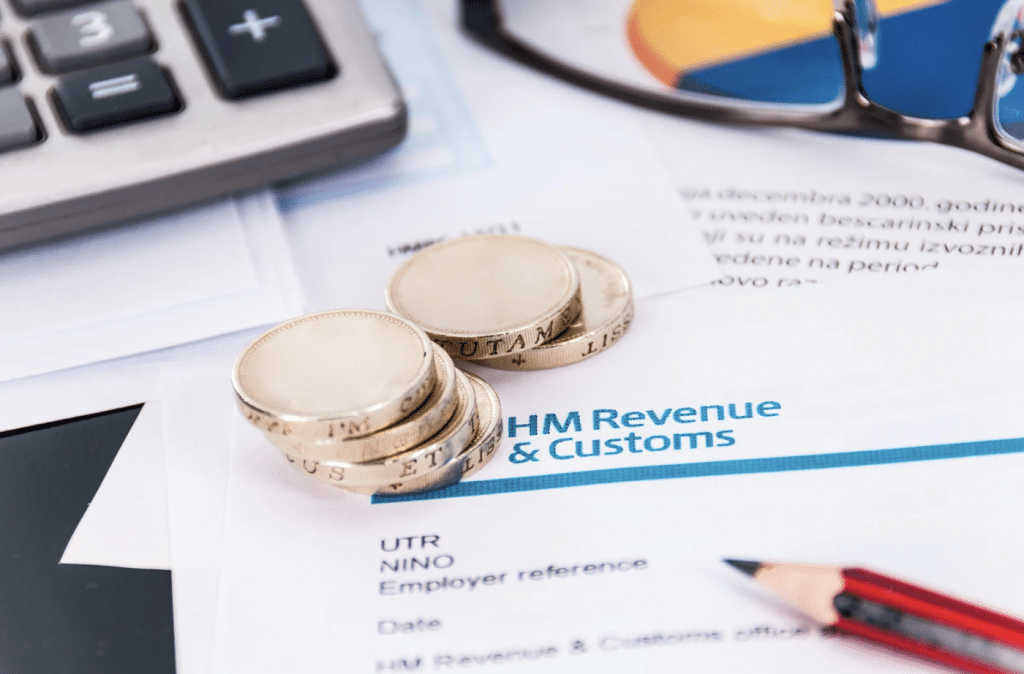Worried about hiring the wrong expat tax adviser? Learn how to spot red flags, ask the right questions, and find a truly qualified and experienced international tax professional to help with up-to-date accurate advice taking into account a multitude of taxes. Avoid costly mistakes and stay compliant.
What this article covers:
- The biggest red flags to watch for when choosing an expat tax adviser
- Why qualifications alone aren’t enough without years of international experience
- How siloed advisers—even in large firms—can miss critical cross-border issues
- The hidden complexity of UK residency rules and double tax treaties
- Key questions to ask to ensure your adviser is truly trustworthy and regulated
Table of Contents
- Introduction: Why Choosing the Right Expat Tax Adviser Matters
-
Why You Need Not Just a Qualified, but an Experienced Expat Tax Adviser
-
Red Flags When Choosing an Expat Tax Adviser
-
What Makes a Truly Trustworthy Expat Tax Professional?
-
How to Vet an Expat Tax Adviser Before You Hire
- Final Thoughts – Choose With Care, Avoid Costly Mistakes
We understand that hiring an expat tax adviser is a big deal. The stakes are high: one wrong move can lead to penalties, missed reporting, or expensive tax bills.
Whether you’re living abroad full-time, splitting your time between countries, or earning income from overseas, finding the right expat tax advisers is key to staying compliant and protecting your wealth.
But how can you tell if an adviser is qualified and experienced enough to deliver competent advice that will stand up to tax authority scrutiny now and in the future. Taxes involve real life, your life goals and aspirations, new jobs, new businesses, marriages, purchases, sales and travel plans, all affect your tax position going forward.
Tax advice from a compliance point of view and long term tax planning are two different things and where many advisers may be able to advise on basic compliance deadlines and responsibilities, there are far fewer tax advisers that can provide long term planning taking into account multiple jurisdictions.
This article outlines the biggest red flags to watch for, and how to choose the right expert in today’s complex world of cross-border taxation.
Why You Need a not just a Qualified, but an experienced Expat Tax Adviser in Today’s Global Landscape
The Rise of Cross-Border Tax Complexity
The global tax system as we know it has only recently emerged. Historically, taxation was handled at the local or national level, governed by law often originating from centuries-old legal traditions.
In contrast, frameworks for international tax rules—like the OECD’s Common Reporting Standard (CRS) and the automatic exchange of information—are barely a decade old.
This means even skilled domestic advisers can struggle when faced with multi-jurisdictional rules. The laws surrounding tax residency status, treaty relief and how multi-jurisdictional laws differ whether you are resident or non-resident in different territories, require specialised knowledge and even knowledge or qualifications can only go so far. With tax laws evolving and ever in a state of flux and change, experience is also a key factor in understanding where to look and what to look out for.
Why Most Tax Advisers Only Understand Domestic Tax
Even within a single country like the UK, the UK tax system is incredibly fragmented. There are distinct tax streams including:
- Income Tax
- National Insurance
- Capital Gains Tax
- Corporation Tax
- Value Added Tax (VAT)
- Inheritance Tax (IHT)
- Stamp Duty and Land Taxes
- PAYE and Employment Tax
As a result, most advisers specialise in only one or two areas. This is represented even at a recognised tax qualification level—the Chartered Institute of Taxation, which is the hallmark of trusted tax exams—offers the following examination streams: Individuals, Owner-Managed Businesses, Inheritance Tax, Trusts & Estates, VAT, Corporation Tax, International Tax, and Taxation of Major Corporates. Most candidates select just one of these specialist routes.
This type of tax specialisation is essential on a domestic level, but it creates blind spots when clients have assets, income, or business activities abroad.
That means even fully qualified UK tax professionals may not have experience across all tax types—let alone in the complex world of international or expat taxation.
Further complexity arises when dealing with different types of entities:
- Personal vs corporate tax: Individuals are taxed on residence and domicile status, while companies are taxed based on central management and control.
- Business structures like partnerships and sole traders fall under different rules again.
Considering how wide-ranging the tax laws are, a siloed approach is especially common in large accountancy firms, means that these advisers often operate within strict internal boundaries—focusing on a single tax type or client sector—and may rarely get the opportunity to take a holistic view.
While a big name may be impressive, many advisers with only large accountancy firm experience are surprisingly limited in the advice they can give, especially when it comes to cross-border or expat tax issues that cut across tax regimes which might be outside their scope.
By contrast, an experienced adviser from a boutique international tax firm is more likely to have worked across a variety of tax areas and jurisdictions, offering you the integrated, practical guidance your situation demands.
All of this highlights the challenge: because the expat tax landscape is still evolving—and inherently complex—very few advisers are truly equipped to give accurate, joined-up advice across jurisdictions.

Red Flags When Choosing an Expat Tax Adviser
They Claim to advise on international tax matters, Without the Right Experience
Some advisers market themselves as expat tax professionals, but having a certificate isn’t enough on its own. Real expertise comes from years of hands-on experience.
Ideally, your adviser should have at least 10 years of experience working specifically with expat clients or in firms that specialise in cross-border tax issues. It’s even better if they’ve worked at a boutique tax firm, where the focus is entirely on complex international matters—not just UK tax law.
Qualifications like ATT, CTA, or ADIT are important—but without real-world experience across jurisdictions, even a qualified adviser might miss critical details.
As mentioned, be cautious if their only background is at a large accountancy firms. While these names may sound impressive, their advisers are often highly siloed—limited to one tax stream or client sector. This can mean they lack the breadth needed to handle the overlapping tax issues expats face in real life.
To feel confident your taxes are in safe hands, look for someone who’s both qualified and proven, with a long track record of guiding clients through international tax issues from start to finish. Choosing someone without this depth of experience could leave you exposed to inaccurate advice, reporting errors, or costly penalties.
They know enough to be dangerous but not accurate enough to Be “Experts” Without the Right Experience
Knowing enough to be dangerous, for example having a small amount of knowledge regarding cross border tax issues, whilst not enough to be competent, can cost an unsuspecting client thousands in unpaid taxes and fines.
Some advisers market themselves as expat tax professionals, but having a certificate isn’t enough on its own. Real expertise comes from years of hands-on experience. Ideally, your adviser should have at least 10 years of experience working specifically with expat clients or in firms that specialise in cross-border tax issues. Boutique firms, dedicated to international tax, often deliver a more rounded perspective than larger players.
Be cautious if their only experience has been gained in a very large accountancy firm. Even departments dedicated to international services can be either specific to a narrow range of countries or advisers can be pigeon holed within the full scope of client needs. While those names may sound impressive, their advisers typically work in narrow “silos,” focused on specific tax streams or client sectors. That limited experience makes them less able to spot how different tax rules interact—especially when tackling complex regimes like the UK’s Statutory Residence Test (SRT).
Even experienced advisers can get tripped up by the SRT’s complexity. For instance, the rules treat the definition of the word “home” differently depending on the context—accommodation ties require one test to be met (such as availability for 91 days), while the automatic UK test uses another definition. Such subtle interpretation of words that are buried deep within pages and pages of legislation can often trip up inexperienced international tax advisers, and you would never know.
Another trap is the split-year treatment, where eligibility may depend not only on past UK days but also projected future presence. These nuances are easy to overlook unless an adviser has deep, real-world expat experience.
Many tax advisers offer advice that sounds comprehensive, but lacks backing in serious knowledge. Because tax advice spans so far into the future, with so many taxes such as income tax, capital gains tax and Inheritance tax at stake, an adviser with limited knowledge could place you in a disadvantageous position when you later come to unwind a business, sell and property or change your working or living pattern. For example many elections, such as the election to select your main home (which can save you thousands on sale proceeds later), must be made within certain time limits. Missing an election deadline can mean that you have no choice but to pay taxes later, that you could have avoided with the right advice.
They Offer One-Size-Fits-All Advice
Watch out for advisers who don’t ask about your residency, domicile, or international assets. These are vital to calculating your liabilities accurately. A lack of personalised attention can lead to serious tax mistakes.
They Don’t Understand Your Country of Residence
If your adviser cannot explain local tax reporting or treaty positions, they’re not the right person. Inadequate understanding of your host country’s rules can expose you to tax penalties and double taxation.
They Guarantee “Tax-Free” Setups or Loopholes
Steer clear of anyone offering “bulletproof” tax-free structures or exotic offshore schemes. These are often aggressive avoidance strategies that can backfire and may be flagged under tax scams enforcement measures.

What Makes a Truly Trustworthy Expat Tax Professional?
Qualifications and Experience
A genuinely trustworthy expat tax adviser will be open and transparent about their qualifications, regulation, and experience. Certain credentials are strong indicators of technical knowledge. For example, a CTA (Chartered Tax Adviser) qualification—awarded by the Chartered Institute of Taxation (CIOT)—demonstrates that the adviser has passed advanced UK tax exams and is trained to advise on areas like income tax, capital gains, and corporation tax, depending on their specialist route.
Conversely the ATT (Association of Tax Technicians) qualification, also awarded by the CIOT, is a respected entry-level qualification that provides a solid foundation in UK tax compliance. While it’s a useful starting point, it is not sufficient on its own for someone claiming to advise on complex international tax matters. Be cautious of advisers who hold only this qualification yet present themselves as global tax experts, without years of experience advising globally mobile clients.
The ADIT (Advanced Diploma in International Tax) is a highly relevant specialist qualification for those dealing with cross-border tax, covering topics like residence, domicile, double tax treaties, and transfer pricing. Likewise, a STEP qualification (Society of Trust and Estate Practitioners) signals expertise in international estate and trust planning—particularly important for globally mobile individuals and families.
It is important to remember that qualifications alone aren’t enough. The most valuable advisers combine technical knowledge with real-world insight, built through years of hands-on experience—ideally 10 years or more—working specifically with international clients. In fact, when it comes to the nuanced world of cross-border tax, it’s often this practical experience that makes the biggest difference.
The best advisers? They have both: strong qualifications and a solid history of helping expats navigate the rules confidently and compliantly.
Tailored Advice for Your Unique Circumstances
A truly experienced expat tax adviser won’t jump straight into giving advice. Instead, they’ll start by asking a wide range of questions—about your residency and travel history, your sources of income, your family and inheritance plans, and any existing structures or foreign investments you have in place. This careful, upfront approach is essential because no two cross-border tax situations are the same. A competent adviser knows that getting the right outcome starts with understanding the full picture. This level of attention is rarely found in high-volume firms or general accountancy services—it’s a sign you’re working with someone who genuinely specialises in international tax and is focused on getting it right for you.

How to Vet an Expat Tax Adviser Before You Hire
When it comes to your taxes, trust is everything. One of the best ways to feel confident in your decision is by asking the right questions early on. A qualified, trustworthy expat tax adviser will not only welcome these questions—they’ll appreciate your due diligence. Here are five important questions to ask in your initial consultation, along with what to listen for in their response.
What countries do you regularly advise clients in?
Cross-border tax advice relies heavily on local laws, double tax treaties, and residency rules. An adviser may be excellent at UK tax, but if they don’t regularly advise clients who live in or earn income from your original home country, the countries you need advice about, or your country of residence, they may not understand the specific filing obligations, exemptions, or pitfalls you face.
By asking this question, you’re checking for practical, up-to-date experience. The right advisers should be familiar with both ends of your tax situation—not just one. Look for specific country names in their answer and ask for examples of situations they’ve worked on that are similar to yours. A vague or general response may suggest they lack the hands-on experience needed to manage your case properly.
What experience do you have with UK tax advice, and which companies have you previously worked for—and for how long?
If you’re a British national, tax resident, or someone with UK income or assets, your adviser must understand UK tax in depth. This includes the UK Statutory Residence Test (SRT), the remittance basis, and the intricacies of HMRC reporting requirements.
Asking about their experience helps you gauge both depth and relevance. Have they worked at boutique firms that specialise in expat and international tax, or only in large generalist firms where they were siloed into one area? Have they spent enough time in each role to develop expertise, or do they move frequently without mastering the tax landscape?
Look for clear examples: years of experience, client types, types of UK taxes advised on (e.g. income tax, capital gains, inheritance tax), and evidence of understanding cross-border interaction. This is where experience truly matters—more than just a job title.
Do you hold prestigious qualifications and international experience?
Qualifications show commitment to professionalism and ongoing learning. For international tax, the most relevant qualification is ADIT (Advanced Diploma in International Tax). It’s globally recognised and covers complex areas such as residence, domicile, double tax relief, and transfer pricing.
While UK-specific qualifications like CTA (Chartered Tax Adviser) or STEP for trusts are valuable, they don’t always cover the full breadth of international issues. The ATT (Association of Tax Technicians) is a respected entry-level qualification, but on its own, it’s not enough for handling cross-border tax matters.
The best advisers have layered qualifications and experience— prestigious UK-focused exam qualification such as the CTA or STEP qualification, along with many years of international practical experience for example, shows the level of understanding needed of a trusted adviser.
Don’t be afraid to ask what exams they’ve passed, what their specialisms are, and what continuing education they pursue. If they brush off the question or offer vague responses, that’s a red flag.
That’s not to say a tax adviser with no qualifications cannot be an excellent adviser, but not without at least a decade of experience and with senior level positions within a tax team on their CV.
Are you regulated?
A professional adviser should be regulated by a recognised body—such as the Chartered Institute of Taxation (CIOT), STEP, or a local financial services regulator depending on where they operate. Regulation ensures they follow a professional code of conduct and are subject to disciplinary action if they fail to meet required standards.
Unregulated advisers may still sound knowledgeable, but they don’t operate under any formal accountability structure. That increases your risk. So be direct: ask for confirmation of insurance, regulatory membership, and how complaints or disputes would be handled. A reputable adviser will be happy to share this information.
Can you explain how double tax treaties work?
This is a great test of real-world competence. A skilled adviser should be able to explain double tax treaties in plain English—how they help you avoid being taxed twice on the same income, how to apply the correct treaty provisions, and what forms or filings may be required.
This question lets you see whether they can communicate complex information clearly and accurately. For example, they should know how to apply treaty tie-breaker rules for tax residency, or how to use a treaty to reduce withholding tax on dividends, royalties, or pensions.
If they struggle to explain this or default to vague terms, it may be a sign they’re not confident in this area. A true expert will break it down in a way that makes sense, giving you peace of mind that they not only understand the rules—but can apply them to your situation.
Red Flag Responses to Watch Out For
- “Don’t worry about that—we’ve got a workaround.”
- “We use this scheme all the time, no one will notice.”
- “You don’t need a written plan, just trust me.”
Choosing the right professional starts with asking the right questions. It’s the only way to find professional tax support that actually protects you.
Final Thoughts – Choose With Care, Avoid Costly Mistakes
The right trusted tax advisers can help you legally reduce your tax bill, stay compliant in multiple countries, and avoid costly penalties. But unfortunately, many so-called expat tax professionals are neither qualified nor experienced in this evolving field.
If you’re navigating life abroad, don’t leave your finances to chance. For expat tax help you can rely on, book a consultation with a qualified expat tax professional at Expat Taxes today for clear, personalised advice, tailored to your situation.

DISCLAIMER: The material in this article is for general information purposes only and does not constitute legal or taxation advice. Legal, financial, investment and taxation advice should be sought before acting or refraining from acting. All information and taxation rules are subject to change without notice. Expattaxes.co.uk Limited (hereafter ‘the parties’) accept no liability for any action taken based on the information in this article or any of the articles on this website.
Written by Venita Machnicki, CTA (UK), ATT
Venita is a Chartered Tax Adviser with over 15 years of experience specialising in UK and international tax. She is a trusted expert in cross-border tax matters for globally mobile individuals, expats, and business owners. Venita combines deep technical knowledge with a practical, client-focused approach to help people navigate the complexities of UK tax while living and working overseas.





